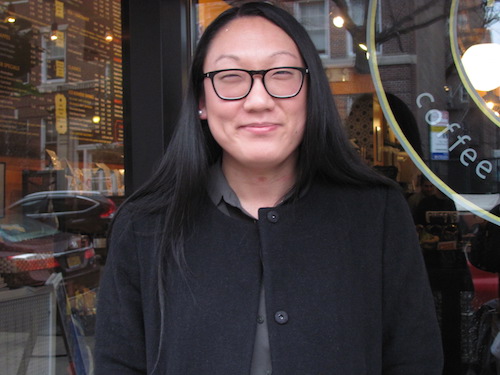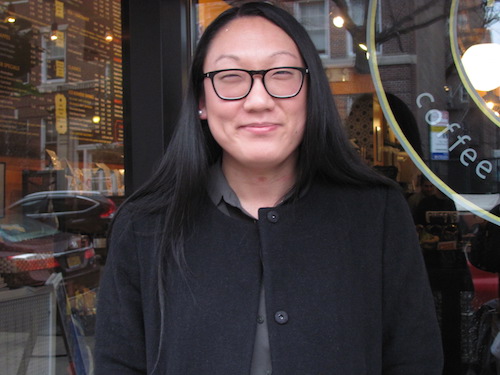The first time Andrea Marra became an activist was in a city known for corruption, stagnation, and secret deals: Albany.
In high school, she helped advocate for the Dignity for All Students Act, a law that enforces zero tolerance for harassment and discrimination in schools. She learned and remembered the basics of organizing and activism, but just recalled political ambitions during that “transformative” time.
“A friend recently reminded me, who knew me back then, that in the midst of organizing and lobbying for that piece of legislation, apparently I said I wanted to run for New York State Senate,” she said.

That desire became reality earlier this month as Marra announced her candidacy to defeat State Sen. Jose Peralta (D-Corona, East Elmhurst, Elmhurst, Jackson Heights, Woodside). She joins two other contenders, Jessica Ramos and Tahseen Chowdhury, in a Democratic primary for District 13 residents.
Marra, born in Seoul, South Korea, is recognized for years of communications work with numerous organizations, such as the Human Rights Campaign, the National Center for Transgender Equality, and Freedom for All Americans. She’s been honored by the White House as one of the Next Generation of LGBT Leaders.
An activist for over 15 years, Marra moved to Jackson Heights nine years ago after looking to move into an affordable neighborhood. Moreover, she sought a safe place after being attacked in her last neighborhood because of her identity as a trans woman.
After years of feeling comfortable in the community, Marra thought about acting after the surprise victory of Donald Trump in the 2016 presidential election. Just two months later, Peralta, announced he would join the Independent Democratic Conference (IDC), a group of eight State Senate Democrats that work in a coalition with the majority Republicans in the chamber. This persuaded her to run as a candidate in the Democratic primary.
“I watched, very closely, Peralta’s response to join the IDC and he’s expressed no remorse,” she said. “He’s also expressed unwillingness to truly listen to his constituency and rejoin the mainline Democrats.”
One year later, on February 6, Marra made her campaign official for the seat with a sizable amount for her campaign. Before her run became official, she raised about $50,000 from friends and family in less than 30 days. In comparison, Peralta raised over $79,000 last month and has a total balance of around $157,500.
If she becomes the Democratic nominee on September 11, Marra pledges to listen to the community and address issues in the district. Health care reform is part of her priorities for the district. She cited Elmhurst Hospital, one of 11 New York City publicly-funded hospitals, as one service that needs investment because it is underfunded.
“Over one million people rely on Elmhurst Hospital here in the district. They’re not receiving the level of funding that matches the level of care provided to the people of New York City,” she said.
Her interest in health care comes from her mother, who worked as a health care worker and shared stories of problems within the system. That’s why Marra favors policies such as single-payer health care and establish a minimum level of charitable care hospitals should provide.
Marra added that she would prioritize helping small business owners as several friends in the restaurant industry could not cope with the city’s commercial rent.
“Many of them want to open their own restaurants and simply can’t because of the rising costs of commercial rent. It’s either prevented them from opening their own small businesses or forced them out of the city,” she said.
Reliable city transportation, affordable housing, and safety are other issues included in her platform for state senator. Marra would favor more city appointees on the MTA’s board and expand the recent basement apartment program in East New York to the district, control costs for business owners in a city with high commercial rents, and passing legislation barring discrimination based on gender.
Marra acknowledged that, if she won the general election, she would be recognized as the first trans woman as well as first Asian-American in the state senate. However, she felt this didn’t capture the reason she was running.
“Those perlatives are important,” she said. “But I also believe that, while I happen to be trans and happen to be Asian-American, this is about the community and the community I—and 300,000 people—call home.”









